Meet the Team
-
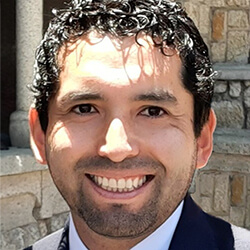
Christian Arias Reyes, PhD
Fellow PhD
Dr. Arias Reyes obtained his doctoral degree in cell and molecular biology at Laval University. His research focuses on studying the cellular and mitochondrial metabolic mechanisms of acclimatization to high-altitude hypoxia and their potential use in the treatment of mitochondrial diseases causing neurodegeneration like Leigh syndrome. He is skilled in bioenergetics, biochemical and molecular techniques for studying systemic and cellular responses to hypoxia. His overarching objective is to elucidate the cellular mechanisms underlying adaptation and acclimatization to high altitude in the brain. He maintains multiple collaborations with researchers in Latin America on topics related to high-altitude biology, including evolution, physiology and cell and molecular biology.
-

Michelle Bard
Clinical Research Coordinator
Michelle Bard holds a master of applied science degree in spatial analysis for public health from Johns Hopkins University. Since 2021, Michelle has been the clinical research coordinator for the Sudden Unexpected Infant Death (SUID) project at Seattle Children's Research Institute, which focuses on understanding the complex variables that converge to result in the tragic, sudden death of an infant. The project’s goal is to identify genetic risk factors for SUID by integrating whole genome sequencing, transcriptomics and multi-omics evidence in infants that have succumbed to SUID. She also manages various ongoing epidemiological studies aimed at detecting population-level risk factors for SUID. Additionally, she promotes global collaboration and data sharing with the intention of advancing the understanding of SUID and developing evidence-based interventions to save infant lives.
-

Hema Bhagavan, PhD
Fellow PhD
Dr. Bhagavan holds a doctorate in honeybee social behavior from the National Center for Biological Sciences, India, specializing in molecular neuroscience, social interactions and data analysis. She brings an interdisciplinary approach and uses cutting-edge techniques to understand brainstem neurons that regulate breathing. Her current research focuses on cell-type characterization using transcriptomics and electrophysiology. Previously, she worked with Dr. Olcese U. and Professor Pennartz's group at the Swammerdam Institute for Life Sciences, University of Amsterdam, where she developed skills working on mice. She is enthusiastic about specializing her research skills in the Ramirez Lab and expanding her knowledge in neuroscience.
-

Ryan Budde, PhD
Fellow PhD
Dr. Budde is a postdoctoral fellow in the Ramirez Lab in the Norcliffe Foundation Center for Integrative Brain Research at Seattle Children's Research Institute. He obtained his PhD in biomedical engineering at the Johns Hopkins School of Medicine in 2024, studying under Professor Pedro Irazoqui. Budde’s work has focused on implantable device design, neuromodulation and epilepsy. His current work explores the mechanisms of apnea in the brainstem, linked to fatal apneas in sudden unexpected death in epilepsy (SUDEP), sudden infant death syndrome (SIDS), sudden unexpected death in childhood (SUDC) and related cases. He also explores epileptogenesis more broadly and other respiratory coordination issues (dysphagia, croup, aspiration pneumonia) common across many disorders.
-
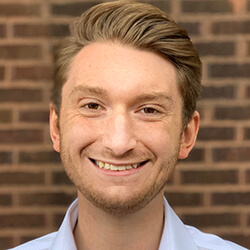
Nick Bush
-
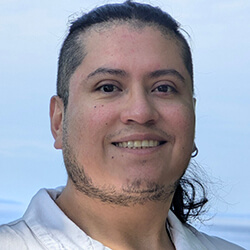
Ricardo Erazo-Toscano, PhD
Fellow PhD
Dr. Erazo, a junior postdoctoral fellow in the Ramirez Lab, blends Ecuadorian roots with U.S. scientific rigor. His research on SIDS epidemiology explores parental behavior and demographics. With a PhD in neuroscience from Georgia State University, he excels in computational neuroscience, using data science to analyze complex datasets and uncover insights into respiratory rhythms.
-
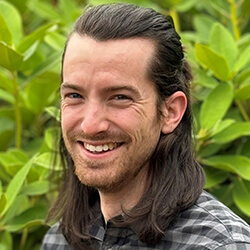
Zack Glovak, PhD
Fellow PhD
Dr. Zachary Glovak is a postdoctoral fellow in the Ramirez Lab at the Norcliffe Center for Integrative Brain Research, Seattle Children's Research Institute. He earned his undergraduate degree in neuroscience and his PhD in behavioral neuroscience from the University of Tennessee, Knoxville. Glovak's research focuses on the cortical areas that influence breathing, with a particular emphasis on the prefrontal cortex — a brain region involved in facilitating complex behaviors that can alter respiratory patterns. His work aims to better understand the neural mechanisms underlying the regulation of breathing and its interplay with cognition and behavior.
-

Alyssa Huff, PhD
Fellow PhD
Dr. Huff is a senior postdoctoral fellow in the Ramirez Lab. Her research primarily focuses on craniofacial neuroscience investigating the neurophysiology of swallow and its coordination with breathing in Leigh and Rett syndromes. Disruption of this coordination leads to aspiration of food/liquid, which increases the risk of aspiration pneumonia, a leading cause of death in most respiratory and neurological disorders. She has combined her knowledge of upper airway and breathing physiology with modern neuroscience techniques to unravel the neurocircuitry of swallow and breathing and their coordination. Her techniques include muscle, nerve and neuron electrophysiological recordings; optogenetic; chemogenetics; and viral vector approaches.
-

Luiz Oliveira, PhD
Fellow PhD
Dr. Oliveira earned his PhD in pharmacology from the University of São Paulo in 2019 and started his postdoctoral training in 2021. He focuses on investigating the role of various groups of neurons in both breathing and chemoreception in Parkinson's disease. Since joining the Ramirez Lab, he has focused on studying the circuitry involved in post-inspiratory activity. More recently, he has shifted his focus to investigating the role of astrocytes located at the ventral respiratory column in the arousal response.
-
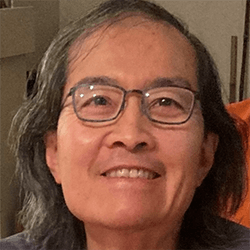
Research Scientist III
Dr. Wei hails from Taiwan and grew up in Wisconsin and East Tennessee. He graduated from the University of California, Berkeley, with an AB (neurobiology), and the University of Oregon with a PhD in biology (neuroethology) with Graham Hoyle. He received postdoctoral training in molecular neurobiology at Washington University School of Medicine with Lawrence Salkoff, where he developed his fascination with ion channels, particularly the genetic diversity of potassium channels. He moved to Seattle Children's Research Institute and helped start NFCIBR as one of its founding cohorts of researchers. Dr. Wei has had the immense pleasure of serving on the research faculties at Washington University and the University of Washington.
